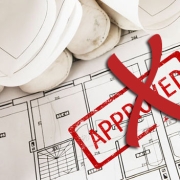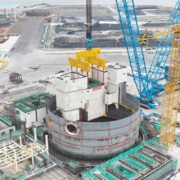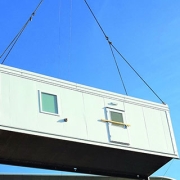Planning approvals for new homes have fallen to a new record low as the Government is accused of caving to nimbyism.
The number of planning permissions granted for new build homes in Britain has fallen 20pc in the past year and is at the lowest level since records began in 2006, figures show.
The number of homes approved has nearly halved from a peak of 110,000 in the first quarter of 2021 to 62,700 in the second quarter of this year, according to the Home Builders Federation, a trade body.
Builders said “NIMBY”councils and others had been allowed to block more planning applications after the Government scrapped mandatory house-building targets for local areas at the end of last year, caving to pressure from dozens of backbench MPs.
It comes after Michael Gove, the Levelling Up Secretary, has vowed to block “ugly” homes and give communities more powers to shape the appearance of new builds in their neighbourhoods.
In April he overruled planning inspectors to refuse permission for a 165-home development in Kent because the homes were of a “generic suburban nature” and did not “reflect the expectations” of the local design code.
It was believed to be an unprecedented move for a housing secretary.
The housebuilding industry has warned that the number of homes being built in the coming years could fall to the lowest level since World War II.
The Government has repeatedly missed its target of building 300,000 homes in England each year, which critics say is contributing to shortage of properties and pushing up prices.
Neil Jefferson, managing director of the Home Builders Federation, said Government policies have become “increasingly anti-development and anti-business”, which has resulted in a sharp fall in the number of homes being built.
He said: “The Government’s capitulation to the NIMBY lobby on planning, its mishandling of water legislation and amidst a lack of mortgage availability the lack of support for first-time buyers could see housing supply drop markedly in the coming years.
“Fewer homes being built amidst an acute housing crisis has clear social implications, in particular for young people, and will reduce economic activity and cost jobs.”
Following extended pressure from builders, the Government has said it will change water legislation to allow more homes to be built.
Some 150,000 homes have been denied because of “nutrient neutrality” rules, which aim to limit nutrient pollution and require developers to show they will prevent or offset this type of pollution to local wetlands and protected areas.
Taxpayers will pick up the bill instead of the property industry.
Developers are also facing a drop in demand because of high mortgage rates and the end of the Help to Buy scheme last year, which had subsidised the cost of buying new builds for first-time buyers but was accused of inflating prices.
A spokesman for the Department for Levelling Up, Housing and Communities said:
“Planning permission was granted for 264,000 homes in the last year, showing we are making good progress towards our target of building one million homes over this Parliament.
“We know we need to do more to speed up the planning system, which is why our long-term plan for housing will reduce unnecessary delays and speed up new developments, this is backed by £24 million to scale up planning capacity and a further £13.5 million for a “super-squad” to support large scale projects. At the same time we’re scrapping defective EU laws that are blocking 100,000 homes from being built.”
Source: MSN




